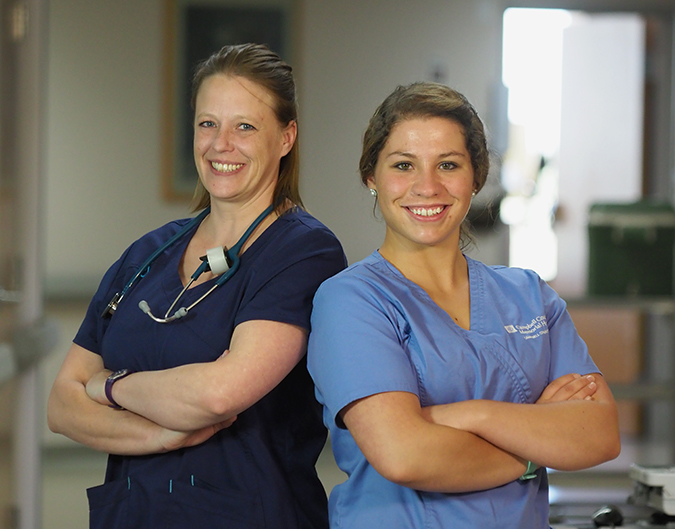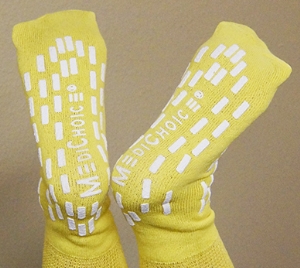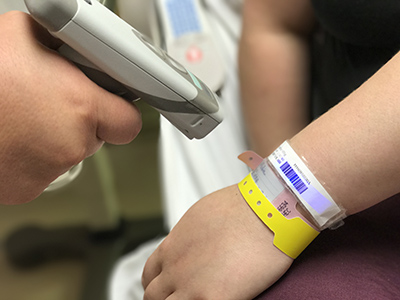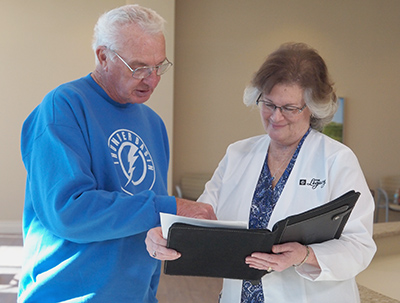
If you're
hospitalized or need care in the
emergency department or one of Campbell County Medical Group's
clinics, you expect the experience to be safe and mistake-free. Campbell County
Health actively works to keep patients safe by reducing the risk of falls,
medication mistakes and readmission to the hospital.
 Fewer Falls
Fewer Falls
Patient falls are one of the most frustrating safety issues facing hospitals
across the nation, and at
Campbell County Memorial Hospital (CCMH) we are working toward creating no fall zones and are using gripper
socks to help make patient mobility safer. For 2017, the fall rate currently
sits at 2.1 per 1,000 patient days, compared to 4 per 1,000 patient days
in 2016. Using the restroom is the primary reason a fall occurs, so CCMH
nurses and CNA’s simply don’t leave patients alone during
this time. The bed exit-alarm is also connected to the nurse call system
so if a patient tries to get up the nurses’ station is immediately notified.
 Bedside Medication Verification
Bedside Medication Verification
Medication errors can have tragic consequences for patients. At CCMH this
is supported with an additional safety measure called bedside bar code
medication administration (BCMA) that is networked to the electronic medical
record, Pyxis MedStation. When giving medications at CCMH, a nurse scans
a bar code on a patient’s wristband to confirm that the patient
is the right patient. The nurse then scans a bar code on the medicine
to verify that it is the right medication, at the right dose, given at
the right time by the right route. Alerts occur if retrieving incorrect
medication or incorrect dosing is attempted.
 Patient Follow-up after Discharge
Patient Follow-up after Discharge
CCMH and
The Legacy Living and Rehabilitation Center use a care management approach for patient discharges. This means a team
of nurses and social workers work in tandem to match the needs of patients’
with the appropriate services. Using this approach helps patients stay
on their path of recovery and keeps them from being readmitted to the
hospital. From January to June 2017, CCMH admitted 1,745 patients, and
of those 618 had care management consultations completed in an effort
to prevent the patient from returning for hospitalization.